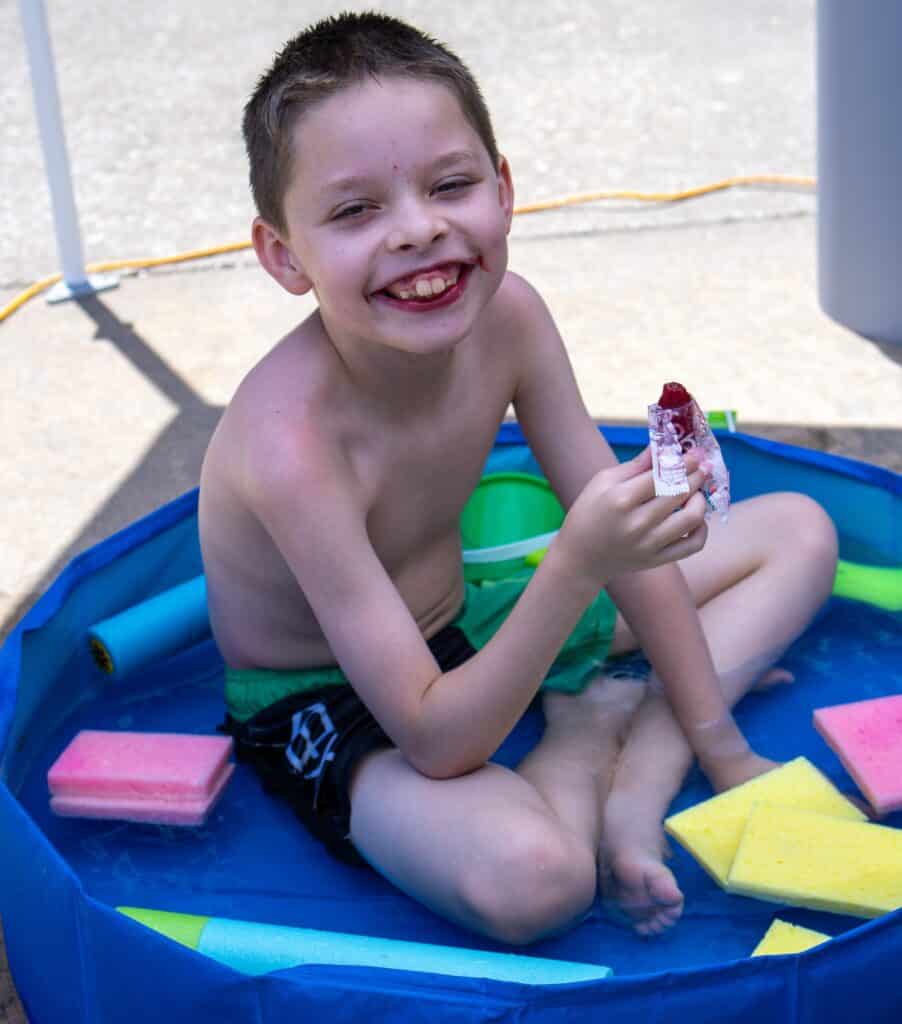Pediatric Feeding Therapy
in Fayetteville, AR
Why Feeding Therapy?
A child facing feeding challenges can be very stressful for the child and their family. Feeding is a complex process that involves coordination between the nervous system and various muscles of the face, mouth, tongue, and head. Additionally, a child needs to process different types of sensory input. Sensory processing difficulties can make certain temperatures, textures, or flavors difficult to tolerate, which affect feeding.
There are also medical conditions that can make feeding more challenging. These include autism, cerebral palsy, dysphagia, facial anomalies, and oral-motor deficits. We have successfully helped children with each of these conditions.
How Do You Know Your Child Needs Feeding Therapy?
These are some of the signs that your child could benefit from feeding therapy:
1. Only eating a few types of foods
2. Refusing to transition to the next food type, e.g., breast to bottle, milk to purée, or purée to solids.
3. Rejecting certain textures or temperatures of foods
4. Struggling to chew or swallow
5. Demonstrating meltdowns or tantrums at mealtime
6. Not gaining weight or growing at an atypical rate
7. Demonstrating mouth breathing, open mouth posture, or tongue sitting forward
8. Gagging or vomiting when trying to eat
Our therapists understand both the struggle the caregiver and child are going through and how to resolve the problem. We can help the child in our therapy sessions as well as advise parents and caregivers on techniques to help make mealtimes more successful at home.
How to Support Your Child with Feeding Therapy
The findings from our initial feeding assessment will determine the best therapy path to improved feeding. We may approach it from any of these directions:
- Improve awareness and function of head and neck muscles
- Strengthen face, mouth, neck, and/or core muscles
- Creatively play and increase tolerance to food textures, tastes, and temperatures
- Improve fine motor skills involved in eating
One of the most important ways we help a child gain these skills is by making every therapy session fun and stress free! This is how we engage a child’s interest and get them involved in the therapy. When they have fun as they improve their skills, they are more likely to try those skills at home and in other environments.
We know that a child learns their best when laughing and having fun are involved!

The Secret to Improving Feeding Skills
Gaining the best progress for your child requires close collaboration between therapists and caregivers. Caregivers who demonstrate a willingness to bring the requested food items, have interest in exploring food play, aren’t scared to get a little messy, and who approach feeding with laughter and understanding will witness much healthier and consistent progress in pediatric feeding therapy. Feeding development takes time and effort, but with the right tools feeding goals can be reached. We feel so grateful to work with our amazing families on these important skills.
Contact Us to Schedule Pediatric Feeding Therapy
At Kindred Pediatric Therapy, a dedicated, caring team has been assembled to give your child the support they need. Find out how we can help by asking for a free screening with one of our therapists. Bring your concerns and questions and get the answers you need. To schedule this screening, call us at (479) 435-6636 or fill out the form below and we’ll contact you.
